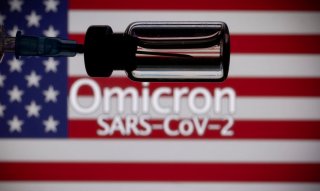Omicron Variant Spotted in Wastewater in California
The Omicron was discovered by Stanford researchers in wastewater samples taken November 30, just days after the first Omicron cases were reported in South Africa.
New cases of the new Omicron variant of coronavirus have been reported around the country and it’s even in the wastewater of one state.
There are double-digit cases of the Omicron variant in California and signs of it in the state’s wastewater, according to the Los Angeles Times. It has shown up in wastewater samples in Sacramento and Merced counties, a state epidemiologist said this week.
“We definitely are seeing Omicron across the state, for sure,” Dr. Erica Pan said in an online discussion about the pandemic.
The Omicron was discovered by Stanford researchers in wastewater samples taken November 30, just days after the first Omicron cases were reported in South Africa.
As of Wednesday, there were twelve Omicron cases reported in California, including six in Alabama County, five in Los Angeles County, and one in San Francisco. There are no reports yet of deaths in any of those cases.
The Long Beach Health Department on December 6 reported on its first Omicron case; Long Beach is part of Los Angeles County. The person was reportedly “fully vaccinated and is asymptomatic,” and had returned from travel outside the country, though not in Southern Africa.
“As of now, the impact of Omicron is not fully known, but everyone is urged to reduce COVID-19 transmission by getting vaccinated or boosted, wearing masks indoors and at large outdoor events, and by getting tested when feeling sick or if exposed to COVID-19,” the Long Beach Health Department said in a press statement. “This variant may be more contagious, but it is believed that current vaccines should provide some protection against the Omicron variant.”
That mostly lines up with the scientific consensus, which is that while it remains early, the Omicron variant is likely to spread more easily, while leading in most cases to more moderate cases of the disease. However, health officials, while encouraging vaccination, are taking a wait-and-see approach when it comes to the variant.
Pfizer and BioNTech employees said via a press statement this week that they are confident that their vaccine, plus a booster, will provide protection against and “neutralize” the Omicron variant. Pfizer hopes to have an Omicron-specific vaccine ready by March.
“Although two doses of the vaccine may still offer protection against severe disease caused by the Omicron strain, it’s clear from these preliminary data that protection is improved with a third dose of our vaccine,” Albert Bourla, the chairman and chief executive officer of Pfizer, said in the press statement. “Ensuring as many people as possible are fully vaccinated with the first two dose series and a booster remains the best course of action to prevent the spread of COVID-19.”
Stephen Silver, a technology writer for the National Interest, is a journalist, essayist and film critic, who is also a contributor to The Philadelphia Inquirer, Philly Voice, Philadelphia Weekly, the Jewish Telegraphic Agency, Living Life Fearless, Backstage magazine, Broad Street Review and Splice Today. The co-founder of the Philadelphia Film Critics Circle, Stephen lives in suburban Philadelphia with his wife and two sons. Follow him on Twitter at @StephenSilver.
Image: Reuters

